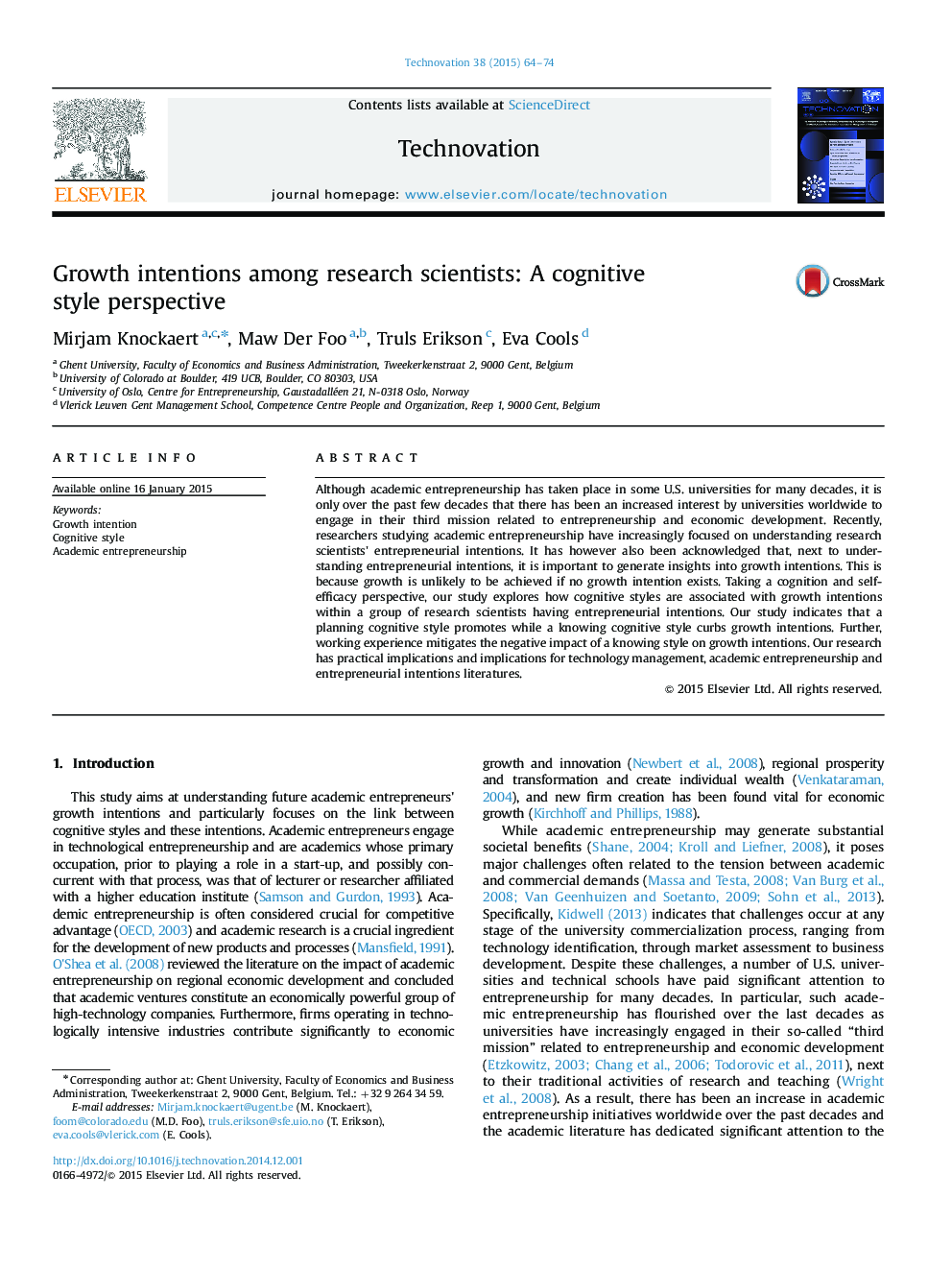| Article ID | Journal | Published Year | Pages | File Type |
|---|---|---|---|---|
| 1021851 | Technovation | 2015 | 11 Pages |
•Our understanding of drivers of growth intentions remains relatively limited.•We study the link between cognitive styles and growth intentions in academia.•A planning cognitive style promotes growth intentions.•A knowing cognitive style curbs growth intentions.•The knowing style–growth intentions relationship is moderated by working experience.
Although academic entrepreneurship has taken place in some U.S. universities for many decades, it is only over the past few decades that there has been an increased interest by universities worldwide to engage in their third mission related to entrepreneurship and economic development. Recently, researchers studying academic entrepreneurship have increasingly focused on understanding research scientists׳ entrepreneurial intentions. It has however also been acknowledged that, next to understanding entrepreneurial intentions, it is important to generate insights into growth intentions. This is because growth is unlikely to be achieved if no growth intention exists. Taking a cognition and self-efficacy perspective, our study explores how cognitive styles are associated with growth intentions within a group of research scientists having entrepreneurial intentions. Our study indicates that a planning cognitive style promotes while a knowing cognitive style curbs growth intentions. Further, working experience mitigates the negative impact of a knowing style on growth intentions. Our research has practical implications and implications for technology management, academic entrepreneurship and entrepreneurial intentions literatures.
